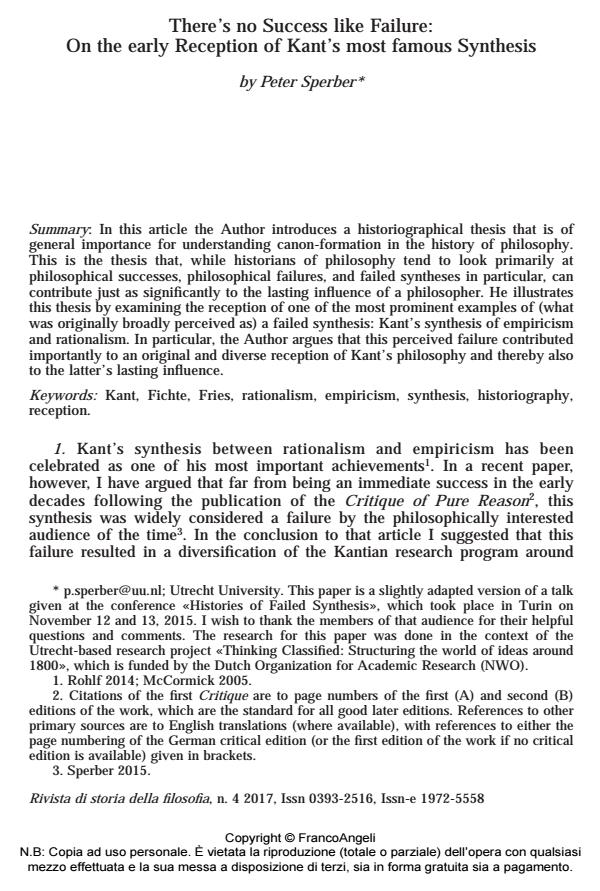There’s no Success like Failure: On the early Reception of Kant’s most famous Synthesis
Titolo Rivista RIVISTA DI STORIA DELLA FILOSOFIA
Autori/Curatori Peter Sperber
Anno di pubblicazione 2017 Fascicolo 2017/4
Lingua Inglese Numero pagine 10 P. 597-606 Dimensione file 41 KB
DOI 10.3280/SF2017-004005
Il DOI è il codice a barre della proprietà intellettuale: per saperne di più
clicca qui
Qui sotto puoi vedere in anteprima la prima pagina di questo articolo.
Se questo articolo ti interessa, lo puoi acquistare (e scaricare in formato pdf) seguendo le facili indicazioni per acquistare il download credit. Acquista Download Credits per scaricare questo Articolo in formato PDF

FrancoAngeli è membro della Publishers International Linking Association, Inc (PILA), associazione indipendente e non profit per facilitare (attraverso i servizi tecnologici implementati da CrossRef.org) l’accesso degli studiosi ai contenuti digitali nelle pubblicazioni professionali e scientifiche.
In this article the Author introduces a historiographical thesis that is of general importance for understanding canon-formation in the history of philosophy. This is the thesis that, while historians of philosophy tend to look primarily at philosophical successes, philosophical failures, and failed syntheses in particular, can contribute just as significantly to the lasting influence of a philosopher. He illustrates this thesis by examining the reception of one of the most prominent examples of (what was originally broadly perceived as) a failed synthesis: Kant’s synthesis of empiricism and rationalism. In particular, the Author argues that this perceived failure contributed importantly to an original and diverse reception of Kant’s philosophy and thereby also to the latter’s lasting influence.
Parole chiave:Kant, Fichte, Fries, rationalism, empiricism, synthesis, historiography, reception.
Peter Sperber, There’s no Success like Failure: On the early Reception of Kant’s most famous Synthesis in "RIVISTA DI STORIA DELLA FILOSOFIA" 4/2017, pp 597-606, DOI: 10.3280/SF2017-004005